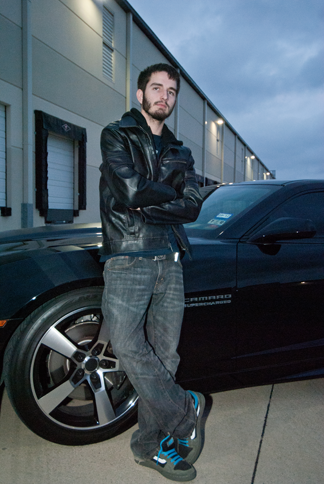By Brian Scott/reporter
For most people, the idea of coming home to a pantry full of food or a hot meal isn’t very far-fetched.
For others, however, it’s only something to be wished for, students were told on NE Campus.
Hunger, students learned, hits close to home. The North Richland Hills Community Enrichment Center provides assistance to the homeless and poverty-stricken in the Mid-Cities area, including 800 students listed as homeless by the Hurst-Euless-Bedford ISD in 2011.
Many may find it hard to put themselves in the shoes of people in situations like these, but Randy Clinton of the center helped students walk in those shoes.
The center is a faith-based nonprofit organization serving 33,000 people throughout Tarrant County. It provides not only food assistance but also other services such as housing, tax assistance and social groups for both seniors and single parents.
Students attending the presentation could experience aspects of food and hunger from three different viewpoints — the wealthy, the elderly and the homeless.
While the presentation usually involves three groups that each receive meals representative of one viewpoint, the NE version allowed all in the audience to play each role.
The audience first experienced the elderly. Clinton and Sheavon Warner of Meals on Wheels handed out that night’s Meals on Wheels dinner.
While handing the meals out, they interacted with participants as they would with any of their clients, including speaking in a loud voice.
While the group ate what most considered an unseasoned, rather bland meal of sloppy joes, potatoes, Brussels sprouts and canned pineapple, Clinton Warner described what the average day is like for Meals on Wheels clients.
Most are confined to their houses with little to no interaction other than with the people who deliver their meals twice a day. He said this aspect of the presentation often produces the most audience emotion as people think of their own grandparents.
Next came the wealthy, people who have more than enough money to get by. This meal consisted of well-seasoned chicken, mixed vegetables and potatoes.
In presentations where groups receive different meals, the “wealthy” are the ones who often leave feeling guilty because they receive more and better food than the other groups, Clinton Warner said.
The final meal — for the homeless — was a box of food like they might receive from a shelter – chips, cookies, canned goods and other non-perishable items.
Clinton Warner also provided some harsh economic realities. He distributed a flier that said a single mother living in today’s economy, working 40 hours per week on $10 per hour, would still fall $511 short each month of providing adequate food for her family.
A video created by NE Campus sociology professor Murray Fortner was shown at the end of the presentation depicting the plight of the homeless and the small amount of help they receive.
“It was an eye-opening experience to view this,” NE student Will McManus said. “We all see homeless people … but we don’t do anything about it.”



























